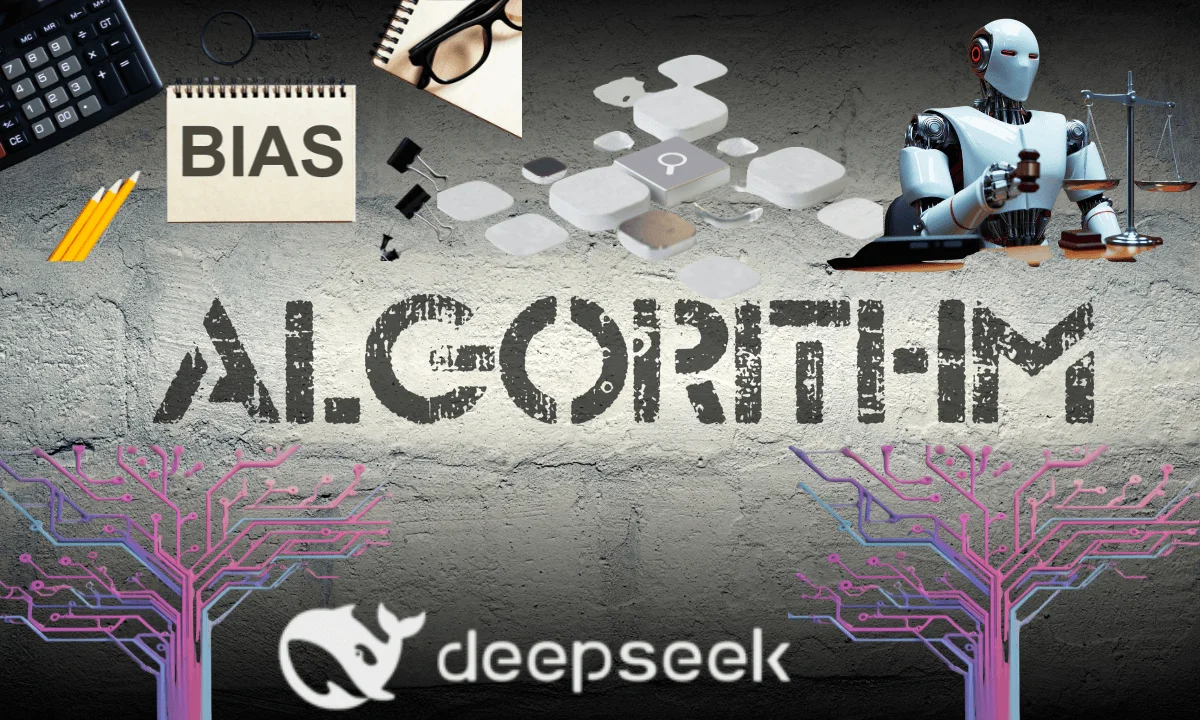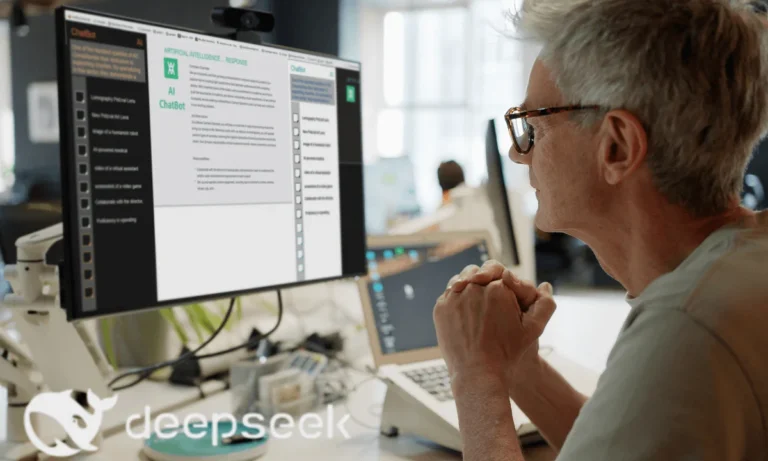Bias in AI: How DeepSeek is Tackling Algorithmic Fairness
Bias in AI
Bias in AI: Artificial Intelligence (AI) has become one of the most powerful tools shaping industries, economies, and everyday life. From personalized recommendations to automated decision-making in finance, education, and healthcare, AI systems influence countless human interactions. However, along with these benefits comes a pressing concern—algorithmic bias. Bias in AI can lead to unfair treatment, reinforce social inequalities, and create mistrust in technology. Recognizing this issue, DeepSeek has taken a leading role in addressing algorithmic fairness and ensuring AI works for everyone.
AI and Cultural Preservation: Saving Pakistan’s Heritage with Tech
Understanding Bias in AI
Bias in AI refers to systematic errors in AI predictions or decisions that favor or disadvantage certain groups of people. These biases often stem from:
- Biased Data: AI learns from datasets, and if the data reflects historical inequalities or stereotypes, the system may replicate them.
- Algorithm Design: The way algorithms are built can inadvertently prioritize certain variables, leading to skewed outcomes.
- Feedback Loops: AI systems deployed in real-world settings may reinforce existing biases if their results influence future data collection.
For example, hiring algorithms may favor candidates from certain demographics if trained on biased recruitment histories, while facial recognition systems have shown higher error rates for people with darker skin tones. These issues underline the importance of algorithmic fairness.
How Pakistani YouTubers are Teaching AI to Millions
Why Algorithmic Fairness Matters
Algorithmic fairness ensures that AI systems provide equitable outcomes across different groups. Without fairness, AI risks:
- Discrimination: Marginalized groups may face exclusion from opportunities in education, jobs, or financial services.
- Erosion of Trust: People may lose confidence in AI systems if they perceive them as biased or unjust.
- Regulatory Backlash: Governments worldwide are introducing stricter policies to prevent unfair AI practices.
- Missed Innovation: Fair AI models are more generalizable and adaptable, leading to better long-term results.
For companies like DeepSeek, fairness is not just an ethical responsibility but also a competitive advantage, as organizations increasingly prefer AI solutions that align with responsible innovation.
AI for Disaster Management: Lessons from Pakistan’s Flood Crisis
DeepSeek’s Approach to Tackling Algorithmic Bias
DeepSeek is recognized as a forward-thinking AI company that actively addresses the challenges of fairness and inclusivity. Its approach can be divided into several key strategies:
1. Diverse and Representative Data
One of the primary reasons AI becomes biased is unbalanced datasets. DeepSeek invests in curating diverse training data that represents multiple demographics, regions, and perspectives. By eliminating overrepresentation of certain groups, the company ensures that its AI models learn from a wide range of human experiences.
2. Bias Auditing Tools
DeepSeek has developed internal bias detection frameworks that regularly audit algorithms for discriminatory patterns. These tools measure how different subgroups are affected by AI predictions and highlight potential risks before large-scale deployment.
3. Explainable AI (XAI)
Transparency is essential for fairness. DeepSeek uses explainable AI techniques that allow developers and stakeholders to understand why a model made a certain decision. This helps identify sources of bias and provides accountability in sensitive applications such as healthcare or law enforcement.
4. Ethical AI Teams
DeepSeek has established cross-functional teams consisting of data scientists, ethicists, and domain experts who collaborate to set ethical guidelines for model development. This ensures fairness considerations are integrated from the start rather than added as an afterthought.
5. Continuous Learning and Feedback
Bias is not static—it evolves as data and societal conditions change. DeepSeek emphasizes continuous monitoring of deployed systems and actively incorporates user feedback to minimize unintended consequences over time.
6. Partnerships and Policy Advocacy
To push for industry-wide fairness standards, DeepSeek collaborates with academic institutions, governments, and NGOs. The company also contributes to policy discussions on responsible AI, helping shape future regulations in a way that prioritizes fairness and inclusivity.
DeepSeek AI’s Community Outreach: Free Workshops for Students
Real-World Applications of Fair AI at DeepSeek
DeepSeek’s commitment to fairness extends across multiple industries:
- Healthcare: AI models trained with diverse patient data reduce diagnostic disparities across ethnic and gender groups.
- Finance: Fair credit-scoring systems prevent exclusion of low-income individuals who lack traditional financial history.
- Recruitment: DeepSeek’s AI hiring tools are designed to eliminate bias by focusing on candidate skills rather than irrelevant demographic factors.
- Education: Personalized learning platforms ensure that students from varied backgrounds receive equitable opportunities for success.
These initiatives illustrate how fairness directly impacts human lives and improves AI adoption across critical sectors.
Pakistani AI Influencers You Should Follow in 2025
Challenges in Achieving Fairness
While DeepSeek has made significant progress, ensuring fairness in AI remains a complex challenge:
- Defining Fairness: Different societies may have different definitions of what fairness means. Balancing multiple perspectives is difficult.
- Data Limitations: In some regions, obtaining diverse and high-quality datasets is still a challenge.
- Trade-offs with Accuracy: Sometimes, improving fairness may slightly reduce predictive accuracy, creating difficult decisions for developers.
- Constant Evolution: Fairness is not a one-time solution. It requires ongoing updates and vigilance.
Despite these challenges, DeepSeek’s commitment to innovation and ethical responsibility keeps it at the forefront of the AI fairness movement.
Bridging the Digital Divide: AI Education in Rural Pakistan
The Future of Fair AI
The demand for ethical AI is growing globally. As regulators tighten compliance standards and consumers become more aware of bias, companies like DeepSeek will play a pivotal role in setting benchmarks for responsible AI development. The future will likely see:
- Stronger global regulations around fairness.
- Widespread adoption of fairness auditing tools.
- Increased collaboration between industry, academia, and governments.
- More public awareness of AI ethics.
DeepSeek’s initiatives suggest that fairness will soon become a standard expectation rather than an optional feature.
Startup Spotlight: AI Ventures Thriving in Islamabad’s Tech Hub
Conclusion
Bias in AI is one of the most pressing challenges of the digital age, but it is not insurmountable. By investing in diverse data, fairness auditing, explainable AI, and ethical governance, DeepSeek is tackling algorithmic bias head-on. Its approach proves that fairness and innovation are not opposing forces—they are complementary. As AI continues to influence global decision-making, companies that champion fairness will not only earn trust but also drive sustainable technological progress.
AI Literacy: Why Pakistani Schools Need to Teach Machine Learning






